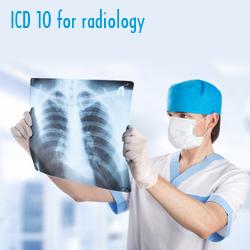According to experts, every practice must start preparing themselves for the ICD-10 transition next year. To make this learning process hassle-free new strategies need to be introduced as performing, testing, planning and training will take great time and effort.
 Amongst all the other things, radiologists need to understand the condition of the patient to correctly report it for coding and billing. ICD-10 will be a lot more detailed than ICD-9 codes so after the physician examines a patient and sends the report to the radiologist, who will in turn have a better understanding of the patient condition. This also means that for accurate billing radiologists need the history of the patient to make billing, dictation, and billing smooth and error-free.
Amongst all the other things, radiologists need to understand the condition of the patient to correctly report it for coding and billing. ICD-10 will be a lot more detailed than ICD-9 codes so after the physician examines a patient and sends the report to the radiologist, who will in turn have a better understanding of the patient condition. This also means that for accurate billing radiologists need the history of the patient to make billing, dictation, and billing smooth and error-free.Also, document specification is another aspect that will be required in ICD-10 for radiology. Moreover, coding will vary based on whether the procedure is outpatient or inpatient. For inpatient exams and procedures ICD-10 PCS codes are to be used. But since one exam can be performed on the same patient twice, for instance: as inpatient and then as outpatient, the report codes need to be different to mark the difference. There are also three specific sections in ICD-10 for radiology, so radiologists need to accurately pinpoint the images and the type of imaging that is being performed.
Codes in ICD-10 for radiology should be matched correctly with CPT codes. In billing, if correct codes are not reported, then it leads to loss in revenue because of inadequate information. In order to overcome this, radiologists need to be in constant communication with referring physicians. Referring physicians provide vital information like writing orders and stating the reason for the exam, so radiologists need to have a good rapport with them. This will help radiologists to bill correctly with complete information that they receive from the referring physicians. A radiologist can face serious issues if a referring office is unable to provide necessary information or is not incorporating new codes and reporting guidelines. At a time of financial crisis, being outdated will only result in compliance issues and heavy monetary losses that will affect radiologists as well as the practice greatly.
To ensure that the work of the radiologist mainly billing is effortless, one has to make sure that the referring physician is well acquainted with ICD-10. In fact, one can also offer help to enable them to train for ICD-10. ICD-10 will be introduced in order to highlight and report detailed and improved data reporting related to everything in a practice, but one needs to prepare thoroughly and ensure that their referral is adequately trained and equipped to implement all the changes. This will help to cut-out loss in revenue and costly audits. As has been stated by CMS, to ensure that your practice stays compliant, you need to start preparing for the ICD-10 transition now.
Stay updated with all the latest coding and billing changes with online medical coding training conferences only on AudioEducator, where you can choose a wide range of webinars on ICD 10 for Radiology and radiology coding conferences to stay compliant.



No comments:
Post a Comment